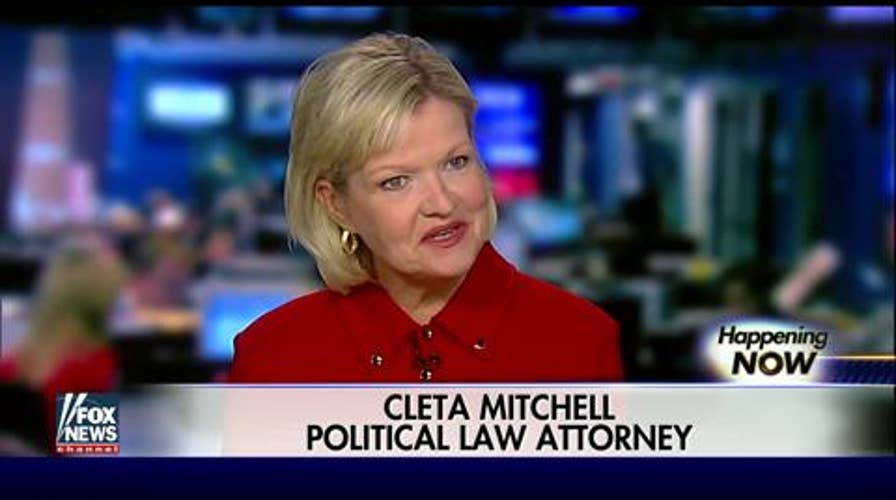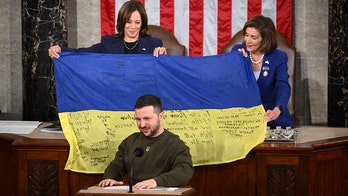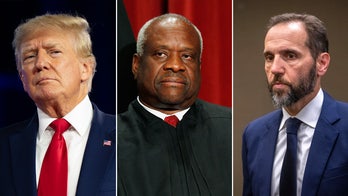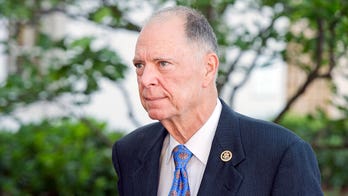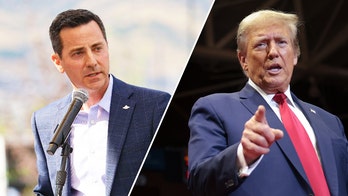IRS proposes new rule to track charitable donations
Proposal would require charities to collect personal data from donors
An Obama administration proposal to have some nonprofit charities report the Social Security numbers of donors giving at least $250 in one year is raising concerns about security, government overreach and another episode of IRS targeting.
“There's a big caution here. There's a big yellow light that should be flashing for a couple of reasons,” Illinois Republican Rep. Peter Roskam tells Fox News.
“Number one, the IRS has not demonstrated its capacity to hold this type of information from confidentiality and a security point of view.”
The change would impact organizations that fall into the 501 (c)(3) category, which includes churches and other religious or charitable groups.
The Internal Revenue Service states the proposed change would be optional. But skeptics question whether it will eventually become the only option.
“It's the No. 1 regulation that people are commenting upon,” attorney Cleta Mitchell recently told Fox News.
Mitchell argues that the IRS cannot be trusted and that the change could have a devastating impact on charities’ ability to collect enough money to survive.
“It would have a dramatic effect on donors' decisions on whether or not to contribute,” she said. “You'd see a lot of $249.99 contributions to every charitable organization in America. It's preposterous.”
The IRS has responded to such arguments by recently releasing a statement that attempts to clarify “major misimpressions and inaccuracies.”
The agency said the change was proposed in September in part because some taxpayers who were being audited -- or “under exam” -- say they lost their donation records and that charities also having a record would help them verify deductions.
“This project was prompted because some … organizations and donors were interested in using this option,” the agency stated. “This proposal would impose no mandatory changes to existing rules.”
Mitchell represents the conservative-leaning group TRUE the VOTE, which says it has already been harassed by the IRS, the federal government’s tax collector.
The agency admitted in 2013 that it had from roughly April 2010 to April 2012 targeted Tea Party and other conservative-leaning groups applying for tax-exempt status.
Some of those groups included those under the 501(c)(3) status.
That tax-exempt status strictly forbids them from participating in political campaigns, though they can spend a fraction of their efforts on such activities as lobbying on legislative issues and holding forums and publishing voter-registration records.
The 2013 revelation led to the firing of an IRS commissioner and probes by the Justice Department, Congress and others. However, no criminal charges were brought.
The deadline is Dec. 16 to submit public comment to the IRS on the proposed change.
Roskam also argues that the request for a full Social Security number comes at a time when banks, utilities, cable TV companies and others are asking customers for only the last four numbers, amid widespread identity theft.
“When the whole rest of the world from a technological view is moving away from using Social Security numbers, the IRS is moving toward them,” he said. “I think we ought not go that route right now.”
Roskam and others are also concerned about the nonprofit groups’ ability to protect the private information they will collect from donors.
“Charities are not well equipped to deal with this,” he said. “We've had for-profit companies -- some of the biggest companies in the world -- that have spent millions and millions and millions of dollars trying to protect their confidential data. And it's been hacked and it's been breached.”
